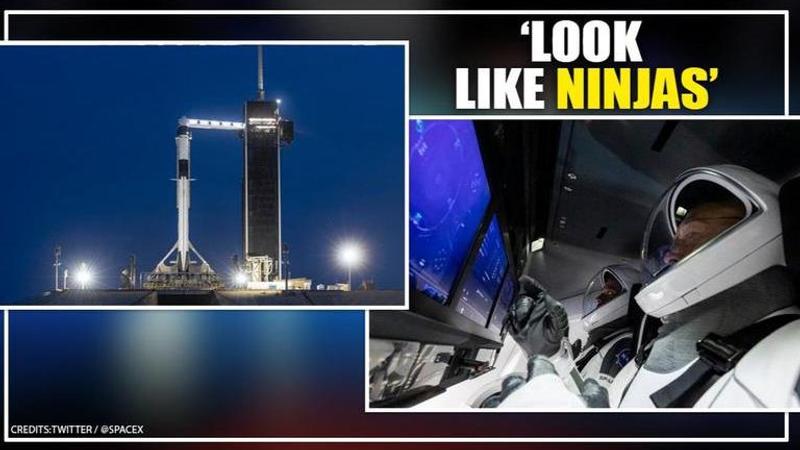Published 10:49 IST, May 26th 2020
SpaceX astronauts spent three weeks in 'ultimate quarantine' ahead of launch: NASA
SpaceX and NASA set up a three-week “ultimate quarantine” to protect the astronauts preparing to pilot Crew Dragon Demo-2 mission from the novel coronavirus.

SpaceX and NASA set up a three-week “ultimate quarantine” to protect the astronauts preparing to pilot Crew Dragon Demo-2 mission from COVID-19. NASA astronauts Robert Behnken and Douglas Hurley are expected to fly on SpaceX’s Crew Dragon spacecraft, lifting off on a Falcon 9 rocket at 2.03pm IST, resurrecting human spaceflight capability of the United States.
During a press briefing, Kathy Lueders, manager of NASA's commercial crew program, said that the quarantine for the crew members is a serious process to ensure they are healthy and aren’t going to carry any potential virus to the crew present on International Space Station. Lueders added that the crew is doing the “ultimate quarantine” and the two astronauts look like “ninjas”.
“They and all the people that have been interacting with them and working with them are suited and checked and tested and to make sure that Bob and Doug are going up to station safe... They look like ninjas," said Lueders.
NASA Administrator Jim Bridenstine on May 23 announced that SpaceX has been given a “go-ahead” for the historic Crew Dragon Demo-2 mission. With this mission, NASA will launch its first crewed mission from US soil in almost 10 years (since 2011). This is also the first time NASA has allowed a private company like Elon Musk's SpaceX, to run the entire show.
Backup launch opportunities
The backup launch opportunities are available on May 30 at 12.52am IST, and May 31 at 12.30am IST. It is the final major test for SpaceX’s human spaceflight system prior to being certified by NASA for operational crew missions to and from the International Space Station.
After entering the orbit, the crew and SpaceX mission control will test the environmental control and life support systems, the manoeuvring thrusters, and thermal control systems among other things to check whether the spacecraft is performing as expected. It will perform a series of phasing manoeuvres to position itself for rendezvous and docking with the International Space Station.
While Crew Dragon is designed to perform the manoeuvres and docking on its own, astronauts piloting the spacecraft and the ISS will be monitoring it and can take control will if deemed necessary. After the successful conclusion of the test flight mission, the spacecraft will undock and depart the Space Station along with the two astronauts to return to Earth.
Updated 10:49 IST, May 26th 2020




